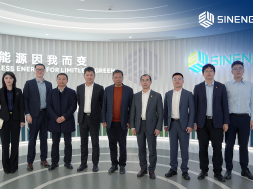
In Short : A solar power scheme in the Mumbai Metropolitan Region (MMR) has enabled 2,448 power consumers to become self-reliant in energy. The initiative promotes the installation of rooftop solar systems, allowing consumers to generate their own electricity and reduce dependence on the grid. This move supports sustainability goals by encouraging the use of renewable energy, cutting down carbon emissions, and contributing to energy security in the region. It also highlights the growing trend of decentralized energy production in urban areas.
In Detail : A new solar power scheme in the Mumbai Metropolitan Region (MMR) has empowered 2,448 power consumers to become self-reliant in their energy needs. The initiative encourages individuals and businesses to install rooftop solar systems, allowing them to generate their own electricity. By doing so, these consumers are reducing their dependence on the central grid while embracing cleaner, renewable energy.
The scheme is part of a larger effort to promote sustainability and reduce the carbon footprint of the region. As more consumers adopt solar power, the demand for conventional grid-based electricity decreases, contributing to a reduction in greenhouse gas emissions. This shift supports the overarching goal of a more sustainable, eco-friendly future for MMR.
In addition to environmental benefits, the initiative offers economic advantages for participants. By generating their own electricity, consumers can lower their monthly energy bills, making solar power a financially viable option. The scheme also opens opportunities for local businesses to provide installation, maintenance, and related services, further boosting the region’s economy.
The success of this solar program reflects a growing trend towards decentralized energy production. With the ability to produce and store their own electricity, consumers are no longer fully reliant on traditional power companies. This self-sufficiency model not only enhances energy security but also aligns with global efforts to transition to renewable energy sources.
As the program continues to expand, there are plans to bring more areas within the MMR under its umbrella, increasing the number of participants. Government incentives and subsidies for solar installations have made it easier for residents to adopt this clean energy alternative. The growth of rooftop solar power in the region showcases the potential for widespread adoption across urban India.
Ultimately, this solar initiative marks a step forward in India’s renewable energy ambitions. With more individuals and businesses embracing solar technology, the region is making strides towards a cleaner, more energy-efficient future. It sets a positive example for other metropolitan areas, demonstrating the viability and benefits of solar energy as a key component of urban sustainability.













